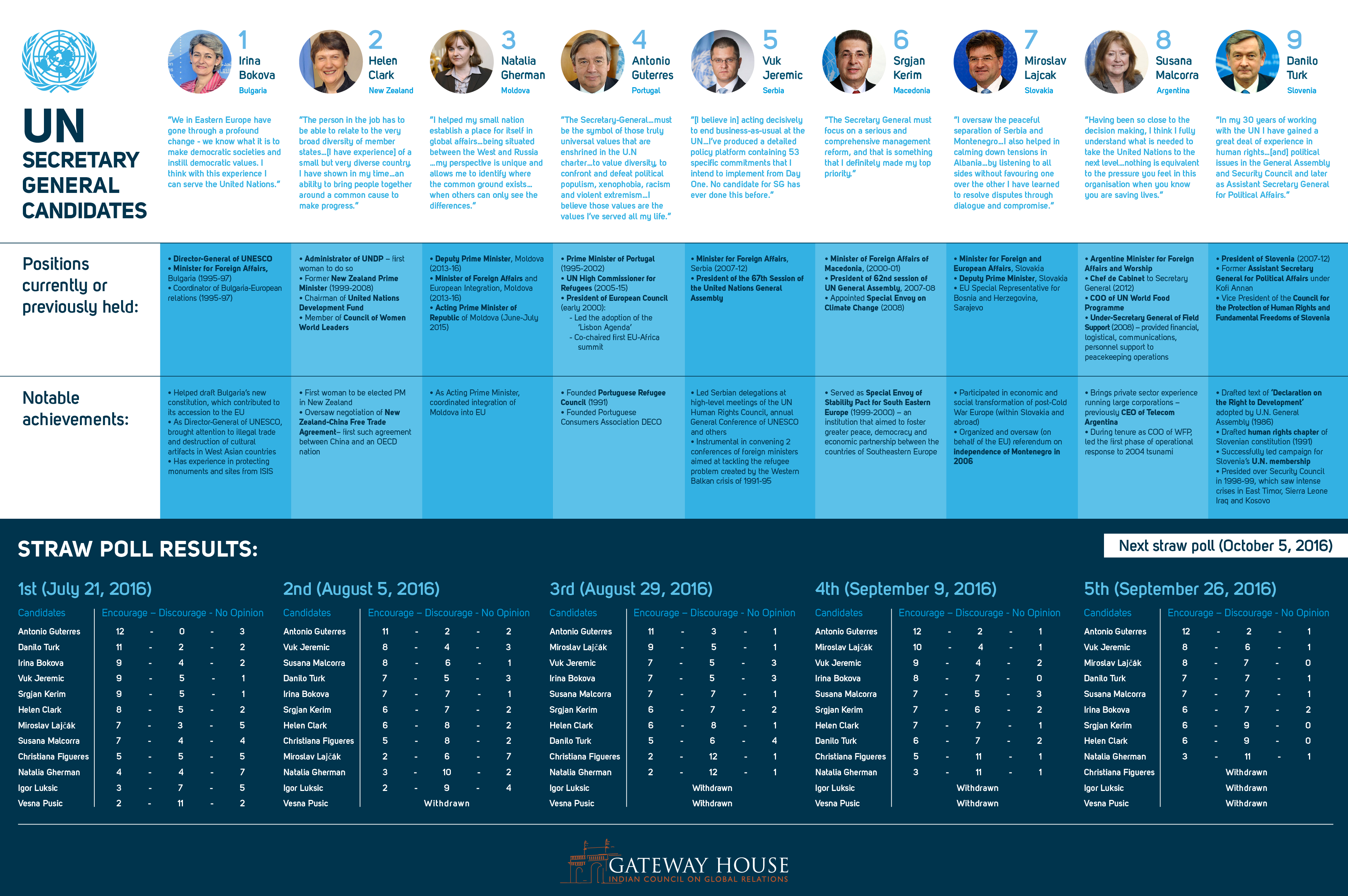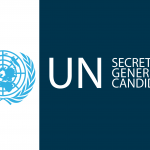
The race to become UN Secretary-General is gathering pace. The initial list of 12 official candidates is now down to nine. There have been rousing calls for the UN to elect the first female Secretary-General in its 70-year history, with there being seven female contenders – the most ever – this time.
The major issues they espouse — transparency, accountability, budgetary and management reform, and prevention of conflict — are common, but the election trend has been fairly unpredictable. Danilo Turk, the former president of Slovenia, was an early favourite whose popularity has slipped, while Miroslav Lajcak, foreign minister of Slovakia, has surged ahead after a poor initial performance.
Most decisions are taken in secrecy, and none are more secret than the series of straw polls conducted within the UN Security Council, which eventually selects the candidates. What is public is the result of the straw poll, which reflects three opinions – ‘encourage’, ‘discourage’, and ‘no opinion’ – for the candidates.
The behind-the-scenes politics usually carries more weight than the merits of the candidates per se, which is reason enough for the reform of the UN system. Worse, the selection process puts disproportionate power in the hands of the permanent members: a ‘discourage’ vote from any one of them automatically vetoes a candidate. For example, Susana Malcorra of Argentina, thought to be favoured by the U.S., may find herself blocked by the U.K. due to the ongoing dispute between Argentina and U.K. over sovereignty of the Falkland Islands.
Despite these fluctuating fortunes, Antonio Guterres, former prime minister of Portugal, has maintained a consistent lead in the polls. This is especially interesting as it was assumed that this year, according to the informal UN system of rotational representation, it was Eastern Europe’s turn to find the winning candidate. Guterres, a UN High Commissioner for Refugees for nearly a decade, possesses intimate knowledge of the internal working processes and has a charismatic personality, making him a naturally favoured candidate.
For more in-depth analysis on the UN Secretary General election process and the politics that govern it, listen to our Q&A with Ambassador Hardeep Singh Puri here.
Ishani Shukla is Website Intern at Gateway House.
Designed by Debarpan Das
This infographic was exclusively created for Gateway House: Indian Council on Global Relations. You can read more exclusive content here.
For interview requests with the author, or for permission to republish, please contact outreach@gatewayhouse.in.
© Copyright 2016 Gateway House: Indian Council on Global Relations. All rights reserved. Any unauthorized copying or reproduction is strictly prohibited.


